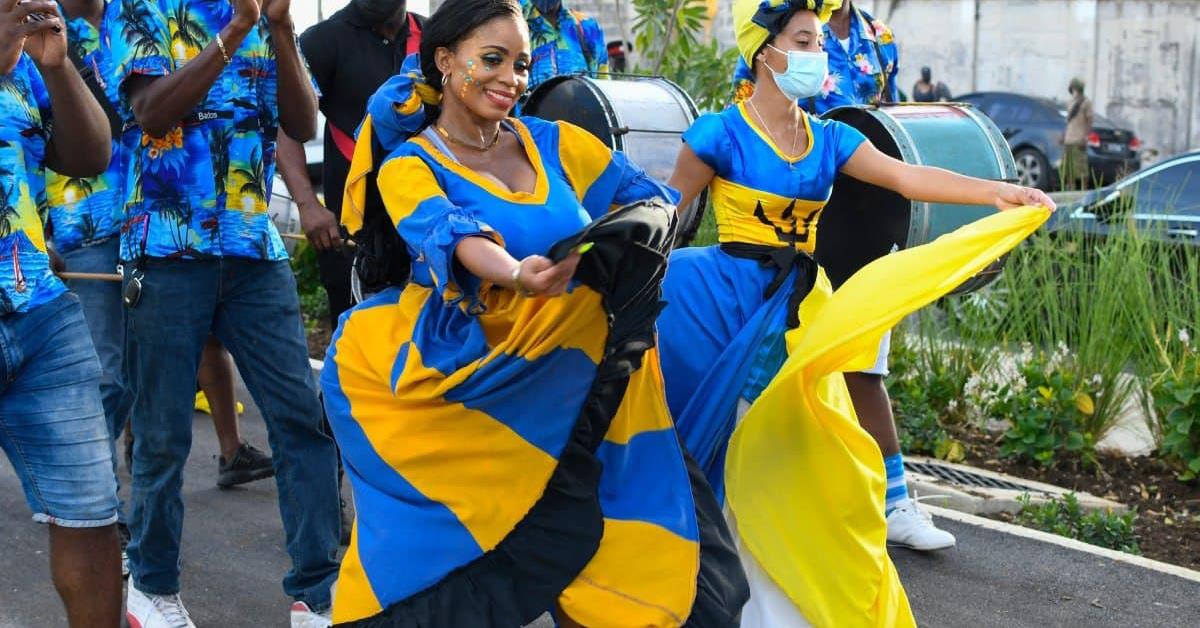BRIDGETOWN, Nov 30 (Reuters) - Barbados ditched Britain's Queen Elizabeth as head of state, forging a new republic on Tuesday with its first-ever president and severing its last remaining colonial bonds nearly 400 years after the first English ships arrived at the Caribbean island.
At the strike of midnight, the new republic was born to the cheers of hundreds of people lining Chamberlain Bridge in the capital, Bridgetown. A 21 gun salute fired as the national anthem of Barbados was played over a crowded Heroes Square.
Prince Charles, heir to the British throne, stood somberly as Queen Elizabeth's royal standard was lowered and the new Barbados declared, a step which republicans hope will spur discussion of similar proposals in other former British colonies that have the Queen as their sovereign.
"We the people must give Republic Barbados its spirit and its substance," President Sandra Mason, the island's first president, said. "We must shape its future. We are each other’s and our nation’s keepers. We the people are Barbados."
Barbados casts the removal of Elizabeth II, who is still queen of 15 other realms including the United Kingdom, Australia, Canada and Jamaica, as a way to finally break with the demons of its colonial history.
"The creation of this republic offers a new beginning," said Prince Charles, whose mother sent her warmest wishes.
"From the darkest days of our past and the appalling atrocity of slavery which forever stains our history, people of this island forged their path with extraordinary fortitude."
After a dazzling display of Barbadian dance and music, complete with speeches celebrating the end of colonialism, Barbadian singer Rihanna was declared a national hero by Prime Minister Mia Mottley, the leader of Barbados' republican movement.
The birth of the republic, 55 years to the day since Barbados declared independence, unclasps almost all the colonial bonds that have kept the tiny island tied to England since an English ship claimed it for King James I in 1625.
It may also be a harbinger of a broader attempt by other former colonies to cut ties to the British monarchy as it braces for the end of Elizabeth's nearly 70-year reign and the future accession of Charles.
"Full stop this colonial page," Winston Farrell, a Barbadian poet told the ceremony. "Some have grown up stupid under the Union Jack, lost in the castle of their skin."
"It is about us, rising out of the cane fields, reclaiming our history," he said. "End all that she mean, put a Bajan there instead."


